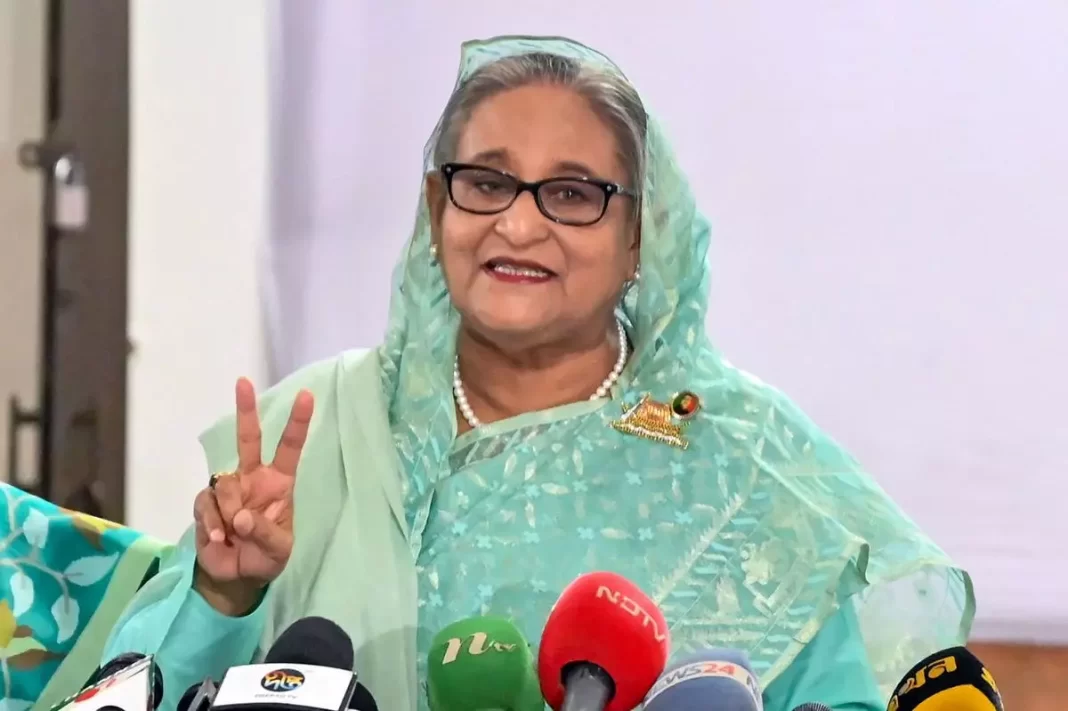Sheikh Hasina’s Explore the story of Khaleda Zia, Bangladesh’s former Prime Minister, recently released from prison amid intense political turmoil. Discover her political journey, rivalry with Sheikh Hasina, and the implications of her release.
Sheikh Hasina’s In a dramatic turn of events that has captured global attention, Khaleda Zia, the former Prime Minister of Bangladesh, has been released from prison, stirring a maelstrom of political controversy and speculation. Sheikh Hasina’s Zia’s release comes at a critical juncture in Bangladesh’s political landscape, marked by longstanding tensions between her and the current Prime Minister, Sheikh Hasina. This article delves into Zia’s political journey, her complex rivalry with Hasina, and the broader implications of her recent release.
A Political Legacy
Sheikh Hasina’s Khaleda Zia, born Khaleda Majumder on August 15, 1945, in Dinajpur, Bangladesh, is a pivotal figure in the nation’s political history. She is the widow of Ziaur Rahman, the former President of Bangladesh who played a significant role in the country’s independence movement. Following her husband’s assassination in 1981, Zia rose to prominence in Bangladeshi politics, eventually founding the Bangladesh Nationalist Party (BNP) in 1983. Her leadership and political acumen swiftly garnered support, leading her to serve as Prime Minister on three separate occasions—1991-1996, 2001-2006, and briefly in 2014.
Zia’s tenure was marked by significant political and economic developments, Sheikh Hasina’s but also by allegations of corruption and governance issues. Despite these controversies, her tenure solidified her as a formidable leader and a key player in Bangladesh’s political sphere.
The Sheikh Hasina Rivalry
Sheikh Hasina’s The relationship between Khaleda Zia and Sheikh Hasina, the leader of the Awai League and current Prime Minister of Bangladesh, has been fraught with conflict and competition. Their rivalry is deeply rooted in the historical and political fabric of Bangladesh, reflecting broader issues of governance, party politics, and national identity.
Sheikh Hasina and Khaleda Zia are often viewed as the two most influential women in Bangladeshi politics, each commanding a substantial base of support and wielding considerable political power. The tension between them has often led to fierce political battles, both in the legislative arena and on the streets.
Political Turmoil and Legal Battles
The political rivalry between Zia and Hasina has translated into a series of legal and political confrontations. In February 2018, Sheikh Hasina’s Khaleda Zia was sentenced to five years in prison on corruption charges related to the misappropriation of funds meant for the Zia Orphanage Trust. This sentence was seen by many as politically motivated, aimed at diminishing her influence and weakening the BNP’s challenge to Hasina’s government.
Also Read – Donald Trump criticizes the Paris Olympics
During her imprisonment, Zia’s health deteriorated, leading to significant domestic and international concern. Her supporters argued that the legal proceedings were a tool of political suppression rather than genuine attempts at justice. The situation intensified political instability in Bangladesh, with mass protests and calls for her release.
The Release of Khaleda Zia
On August 5, 2024, Khaleda Zia was granted a conditional release from prison, a move that has been interpreted as a response to both domestic pressures and international diplomatic considerations. The decision to release Zia comes amid escalating political unrest and growing demands for political reform in Bangladesh.
The conditional release allows Zia to receive medical treatment and address her health issues outside of prison, while still facing restrictions on her political activities. This compromise aims to balance humanitarian concerns with the political implications of her freedom. The release has been met with mixed reactions; Sheikh Hasina’s while it is seen as a potential step towards political reconciliation, it also raises questions about the timing and underlying motivations of the decision.
Implications for Bangladeshi Politics
Khaleda Zia’s release is expected to have significant ramifications for the political landscape of Bangladesh. Her return to the public sphere could re-energize the BNP and challenge Sheikh Hasina’s position in the upcoming elections. Sheikh Hasina’s The dynamics of her interaction with Hasina will be crucial in shaping the future political trajectory of the country.
Moreover, Zia’s release underscores the ongoing issues within Bangladesh’s political system, including the need for judicial independence, transparency, and the protection of democratic rights. It also highlights the international community’s role in influencing domestic politics, as global pressure and diplomatic negotiations often play a critical role in resolving such high-profile cases.
Public and International Reactions
The reaction to Khaleda Zia’s release has been varied. In Bangladesh, her supporters have celebrated her return, Sheikh Hasina’s viewing it as a victory against perceived political repression. Conversely, critics argue that her release is part of a strategic move to manage political dissent and avoid further unrest.
Internationally, the release has been met with cautious optimism. Observers have noted that while it represents a potential thaw in political tensions, the conditions attached to Zia’s release suggest that significant challenges remain in the pursuit of genuine democratic reforms. Human rights organizations and diplomatic entities will likely continue to monitor the situation closely, advocating for fair treatment and political inclusivity.
Conclusion
Khaleda Zia’s release from prison represents a pivotal moment in Bangladesh’s political narrative. As a key figure in the nation’s political history and a prominent rival to Sheikh Hasina, her return to the public eye is bound to influence the country’s political dynamics. The circumstances surrounding her release, Sheikh Hasina’s combined with the ongoing political turbulence, suggest that Bangladesh stands at a crossroads, where the future of its democracy and governance will be critically tested.
The coming months will be crucial in determining the path forward for both Khaleda Zia and Sheikh Hasina, as well as for the broader political climate in Bangladesh. As the nation grapples with these developments, the global community will be watching closely, hoping for a resolution that fosters stability, justice, and democratic integrity.



